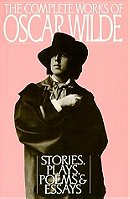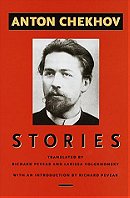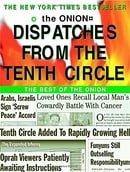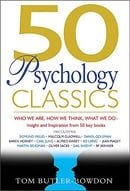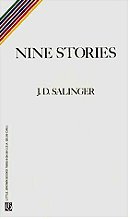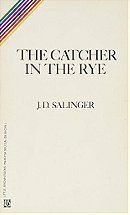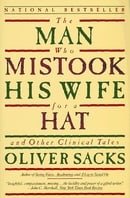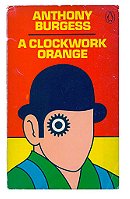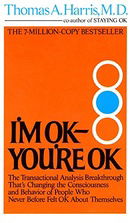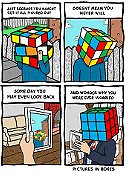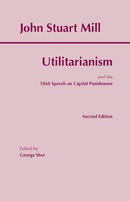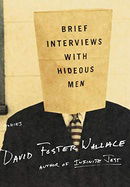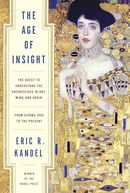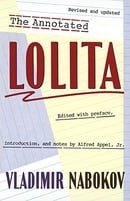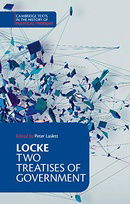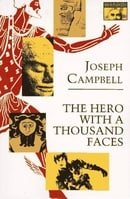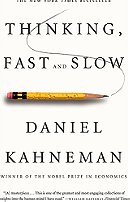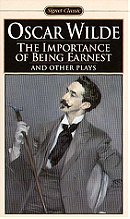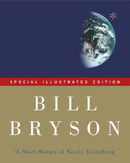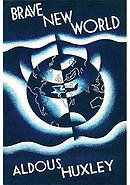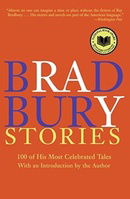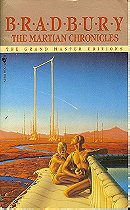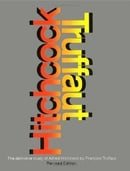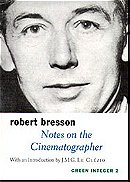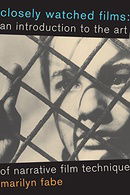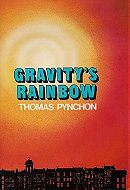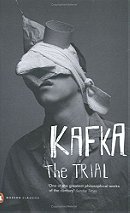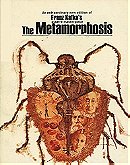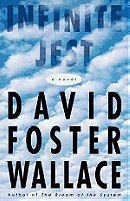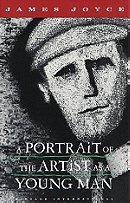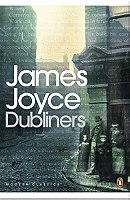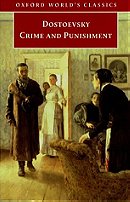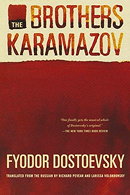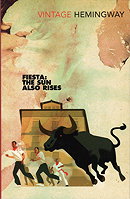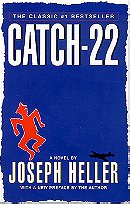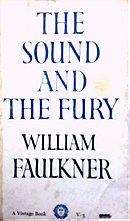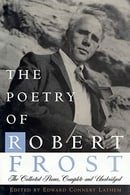2014 Resolution
Sort by:
Showing 45 items
Rating:
List Type:
 Add items to section
Add items to section
Currently Reading
 Add items to section
Add items to section
Finished
This is a fascinating and succinct introduction to psychology. This helped me understand and shape my mental behaviors and emotions, which are not intractable.
Mr. Saturn's rating:


Nine Stories - J.D. Salinger
I know this sounds reductive, but like The Catcher in the Rye, I found the most value in the denouments and the pivotal moments when the characters are humbled and stop being so haughty and inconsiderate. Maybe I was too reserved in my reading because of how much I related to them.
Favorites: A Perfect Day for Bananafish, Teddy, De Daumier-Smith's Blue Period
Favorites: A Perfect Day for Bananafish, Teddy, De Daumier-Smith's Blue Period
Mr. Saturn's rating:


No Country for Old Men - Cormac McCarthy
You think when you wake up in the mornin yesterday don't count. But yesterday is all that does count. What else is there? Your life is made out of the days it’s made out of. Nothin else.
Although the film does the book justice, a lot of great prose and rumination is lost in the adaptation. Really glad I didn't skip this one.
Mr. Saturn's rating:


The Man Who Mistook His Wife for a Hat: And Other Tales... - Oliver Sacks
This is really fascinating and evocative stuff about our minds. The writing is only a little esoteric. Not to sound asinine, but anybody interested in their own mind should get a kick out of this.
Mr. Saturn's rating:


A Clockwork Orange - Anthony Burgess
Does God want goodness or the choice of goodness? Is a man who chooses to be bad perhaps in some way better than a man who has the good imposed upon him?
Interestingly, Burgess didn't see humans as dark Hobbesian creatures, bound by original sin to be always responsible for their evil, but not for the heavenly good. He compared the abridged ending (the one in the film) where Alex says 'I was cured alright' to a fable because he's unchangeable, but in the 'novel' he grew out of stupid violence.
But, Burgess says rigidly applying a mechanistic view of the world, like ideologies, to try to become purely good or evil turns us into clockwork oranges, or dehumanized people. Like Kant, he emphasizes intent above consequences, by believing the ability to choose to be good is good, but merely doing good out of circumstance like habit or self interest isn't.
spoilers - Stanley Kubrick's adaptation was so good and thorough, the book didn't offer much more than familiar enjoyment. I love Nadsat, the fictional language, and the great voice acting in the audiobook made this comprehensible. But the book's denouement is more bleak than the film. Alex becomes an even bigger shit-heel, but never develops regret or empathy. He just grew tired of puerile violence. In a sense, Alex is still a clockwork orange, caring only for his pain and pleasure, and only capable of that.
To answer Burgess' question, it's more moral to have a society where one is free to choose and the individual's better off, but someone who chooses bad is neither better than an amoral do-gooder in intent or consequences. The question strikes me as disingenuous.
Mr. Saturn's rating:


I'm OK - You're OK - Thomas A. Harris
Harris can be a bit longwinded, but he helped me genuinely feel OK about myself and others, and move past emotional games. I'm glad I have more than a cursory understanding of his ideas, but people who feel OK about themselves and others, or aren't interested in psychology will find this a dry read.
Overview:
Games People Play shows the finesse of games, but this book further explains why people are reluctant to leave their 'existential position' and believe everybody is OK; formative experiences leave an indelible impression on our minds. In early childhood, until about 5, we get recordings in our Parent and Child (explained soon). Harris notes, the patterns or 'recordings' remain after the environment, or even recollection is gone (not repressed, but completely forgotten from conscious).
Our minds have 3 ego states that can operate competitively, or in tandem with each other: the Parent(ideas taught from parents and other adults), the adult (our best reaction to the real world), and the child (ideas experienced during early childhood). This is derived from and roughly analogous to the superego, ego, and id. Like, Harris thinks the charioteer (ego/adult) should drive the horses (superego/parent and id/child), but shouldn't be solely driven by them. That isn't to say we should always have a stifling adult life, or we shouldn't moderately let go of the reins e.g. religious experience is a mostly or possibly completely 'childish' experience, according to Harris, but giving lasting control over to the parent or child will lead to contamination of the adult through neurosis or psychosis, respectively. (Personally, when the parent and child are in agreement about something bad, the adult is in greater danger of being ignored.)
A hectic mind will lead to anxiety and decreased working memory. Therefore, a smart and healthy adult will keep the good lessons from the parent and the child, cultivate good habits that are missing, and discard the nasty habits. The stoic idea of not worrying about what's not in our control, the stoic exercise of negative visualization, and Victor Frankl's idea about paradoxical intention (exposing ourselves to irrational anxieties), helped me.
(But problems arise and biases prevent healing e.g. lonely people are biologically apt to sense threats that aren't there; I assume people who've been taught they're not OK and learn bad games, seek out trouble because for them, its the only interaction they know well. )
This is the gist of the book, but I found it enlightening.
---------notes on games------
Steven Pinker brilliantly showed how cursing at people creates an involuntary response in our brains (e.g. if someone says 'you fucker', you'll instantly have negative emotions). But, this manipulation is child's play compared to the 'dishonesty' of bad games. People, unconsciously or not, often have seemingly straightforward conversations, when there's a different subtext at play i.e. a duplex transaction. For example, if someone asks, 'am I boring you' they're placing you in a double bind, where even if they are, you want to be nice and 'stroke' them.
(What's worst, is when someone tries to trap you with a 'gimmick', or some insult they want you to 'disprove', through a passive aggressive phrase like 'bless your heart'; replying in any way, especially in anger, will lead to their indignation. This behavior and any bad game is to be avoided.)
(The cards seemed stacked against my favor. But I have to remember what Daniel Dennett said: if someone's determinist they're less likely to change, although the fairness of the luck they're given hasn't changed. It's cliche, but happy people create their own luck from their perception of events. Remember Epictetus; there's almost no harmful events, but there can always be bad reactions.)
Overview:
Games People Play shows the finesse of games, but this book further explains why people are reluctant to leave their 'existential position' and believe everybody is OK; formative experiences leave an indelible impression on our minds. In early childhood, until about 5, we get recordings in our Parent and Child (explained soon). Harris notes, the patterns or 'recordings' remain after the environment, or even recollection is gone (not repressed, but completely forgotten from conscious).
Our minds have 3 ego states that can operate competitively, or in tandem with each other: the Parent(ideas taught from parents and other adults), the adult (our best reaction to the real world), and the child (ideas experienced during early childhood). This is derived from and roughly analogous to the superego, ego, and id. Like, Harris thinks the charioteer (ego/adult) should drive the horses (superego/parent and id/child), but shouldn't be solely driven by them. That isn't to say we should always have a stifling adult life, or we shouldn't moderately let go of the reins e.g. religious experience is a mostly or possibly completely 'childish' experience, according to Harris, but giving lasting control over to the parent or child will lead to contamination of the adult through neurosis or psychosis, respectively. (Personally, when the parent and child are in agreement about something bad, the adult is in greater danger of being ignored.)
A hectic mind will lead to anxiety and decreased working memory. Therefore, a smart and healthy adult will keep the good lessons from the parent and the child, cultivate good habits that are missing, and discard the nasty habits. The stoic idea of not worrying about what's not in our control, the stoic exercise of negative visualization, and Victor Frankl's idea about paradoxical intention (exposing ourselves to irrational anxieties), helped me.
(But problems arise and biases prevent healing e.g. lonely people are biologically apt to sense threats that aren't there; I assume people who've been taught they're not OK and learn bad games, seek out trouble because for them, its the only interaction they know well. )
This is the gist of the book, but I found it enlightening.
---------notes on games------
Steven Pinker brilliantly showed how cursing at people creates an involuntary response in our brains (e.g. if someone says 'you fucker', you'll instantly have negative emotions). But, this manipulation is child's play compared to the 'dishonesty' of bad games. People, unconsciously or not, often have seemingly straightforward conversations, when there's a different subtext at play i.e. a duplex transaction. For example, if someone asks, 'am I boring you' they're placing you in a double bind, where even if they are, you want to be nice and 'stroke' them.
(What's worst, is when someone tries to trap you with a 'gimmick', or some insult they want you to 'disprove', through a passive aggressive phrase like 'bless your heart'; replying in any way, especially in anger, will lead to their indignation. This behavior and any bad game is to be avoided.)
(The cards seemed stacked against my favor. But I have to remember what Daniel Dennett said: if someone's determinist they're less likely to change, although the fairness of the luck they're given hasn't changed. It's cliche, but happy people create their own luck from their perception of events. Remember Epictetus; there's almost no harmful events, but there can always be bad reactions.)
Mr. Saturn's rating:


Utilitarianism - John Stuart Mill
It is better to be a human being dissatisfied than a pig satisfied; better to be Socrates dissatisfied than a fool satisfied. And if the fool, or the pig, are of a different opinion, it is because they only know their own side of the question.
Mill makes a good argument for utilitarianism, but like Bentham, he unfortunately considers critical arguments specious. Still, I agree with a lot (paraphrasing): utilitarianism is possibly the best axiom to rely on when making a difficult choice; people already have value and don't always need to have utilitarian motives to do good; ultimately, the virtue of person doesn't outweigh the value of an action.
(I think someone who does no harm is better than someone who does an equal amount of good and harm; I'm sure Mill would agree with Kant that 'everybody's an end in themselves (Kant)', and no amount of brownie points entitles people to do harm e.g. 'That the only purpose for which power can be rightfully exercised over any member of a civilized community, against his will, is to prevent harm to others' (Mill).)
Mr. Saturn's rating:


Brief Interviews with Hideous Men: Stories - David Foster Wallace
Audiobook
DFW's writing, especially his non-fiction is very incisive, but despite his beautiful prose, this wasn't as enjoyable or enlightening as those. Maybe I've just been so sordid and known so many sordid types.
Suicide as a Sort of Present and the story about rape, the categorical imperative, and transcendence (#46) are great stories.
DFW's writing, especially his non-fiction is very incisive, but despite his beautiful prose, this wasn't as enjoyable or enlightening as those. Maybe I've just been so sordid and known so many sordid types.
Suicide as a Sort of Present and the story about rape, the categorical imperative, and transcendence (#46) are great stories.
Mr. Saturn's rating:


PostSecret: Extraordinary Confessions from Ordinary Lives... - Frank Warren
edit: A lifetime of secrets is the best one by far.
This book was pretty cathartic. It helped me laugh at my own hang ups, and not resent others. I lost sight of how everybody has their own idiosyncrasies and nobody's perfect. When they reach out, they don't misplace their burdens, but release them; the drawn out anxiety of a secret is often worse than confronting it.
This book was pretty cathartic. It helped me laugh at my own hang ups, and not resent others. I lost sight of how everybody has their own idiosyncrasies and nobody's perfect. When they reach out, they don't misplace their burdens, but release them; the drawn out anxiety of a secret is often worse than confronting it.
Mr. Saturn's rating:


 Add items to section
Add items to section
Reading Soon
The Annotated Lolita: Revised and Updated - Alfred Appel Jr.,Vladimir Nabokov
I'll listen to Jeremy Irons' audiobook
I'm only reading book 2, because it has the heft of Locke's political theories (the first is a renunciation of royalty).
I agree property is a fundamental right, but disagree taxes are theft, and moral and legal transactions in the free market are already paid for by the transaction itself i.e. people already generate value. The utility of maintaining infrastructure and basic human rights is greater than leaving property alone.
Locke's proposal to separate powers like religion, legislative government, and the judicial system prevents corruption and is superior to Hobbes' idea of a beneficent monarch, but the government still needs power to prevent injustice; humanity as a whole benefits from exiting the state of nature.
I agree property is a fundamental right, but disagree taxes are theft, and moral and legal transactions in the free market are already paid for by the transaction itself i.e. people already generate value. The utility of maintaining infrastructure and basic human rights is greater than leaving property alone.
Locke's proposal to separate powers like religion, legislative government, and the judicial system prevents corruption and is superior to Hobbes' idea of a beneficent monarch, but the government still needs power to prevent injustice; humanity as a whole benefits from exiting the state of nature.
 Add items to section
Add items to section
Books
This list is under construction.
I'll read 100 adult books.
I'll read 100 adult books.
 Login
Login
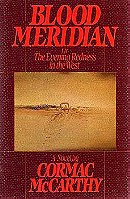
 74
74
 8.1
8.1
 0
0
